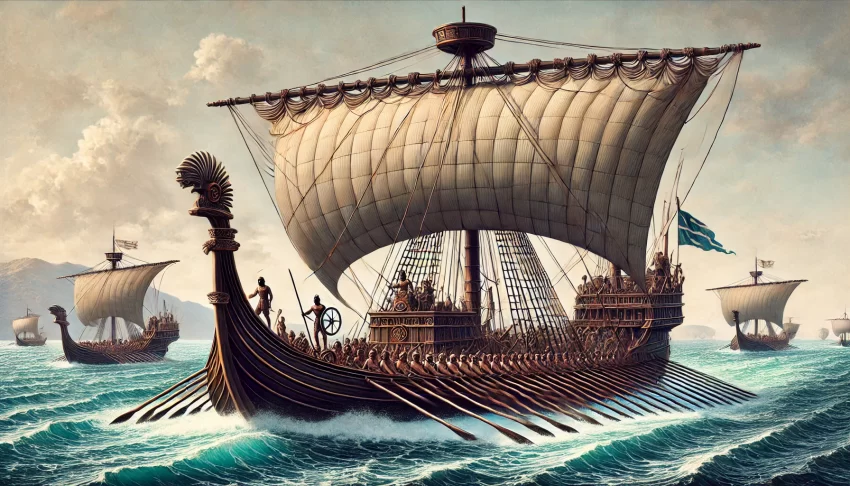The Intermediate Period, spanning the years between the First and Second Punic Wars (241-218 BCE), was a transformative era for both Rome and Carthage. This period, often referred to as the First Interwar Period, was characterized by significant political, economic, and military developments as both powers sought to recover from the First Punic War and prepare for future conflicts. The actions and reforms undertaken during this time laid the groundwork for the eventual resurgence of hostilities in the Second Punic War.
Political and Social Developments in Rome
In Rome, the aftermath of the First Punic War brought about considerable changes in the political and social landscape. The war had resulted in a substantial influx of wealth from war spoils and indemnities imposed on Carthage, leading to a concentration of wealth among the Roman elite. This economic disparity fueled social tensions, particularly among the plebeian class, who had borne the brunt of the war’s hardships.
To address these issues, the Roman Senate implemented a series of agrarian reforms aimed at redistributing public land (ager publicus) to war veterans and poorer citizens. These reforms were contentious and faced resistance from wealthy landowners, but they marked a crucial step towards addressing the growing socio-economic divide. Additionally, the elevation of military leaders, such as Marcus Atilius Regulus and Gaius Lutatius Catulus, to prominent political positions underscored the rising importance of military success in political careers. This shift contributed to the gradual militarization of Roman politics, setting the stage for future power struggles among ambitious military leaders.
Economic and Military Reforms in Carthage
Carthage, on the other hand, faced a different set of challenges in the wake of its defeat. The loss of Sicily, the heavy war indemnity imposed by Rome, and the devastation of its economy necessitated significant reforms. The Carthaginian government, dominated by the merchant oligarchy, sought to revitalize the economy by expanding trade networks and exploiting new resources.
One of the most notable figures of this period was Hamilcar Barca, who emerged as a leading advocate for military and political reform. Hamilcar’s campaigns in Spain were instrumental in securing valuable mineral resources, particularly silver, which were vital for Carthage’s economic recovery and military financing. These campaigns also established a new power base independent of the traditional merchant elite, allowing Hamilcar to pursue his ambitions with greater autonomy.
Carthage also undertook military reforms to address the vulnerabilities exposed during the First Punic War. Recognizing the risks of relying heavily on foreign mercenaries, Carthage began developing a more cohesive and loyal military force. This included integrating native Libyans and other subject peoples more closely into the Carthaginian state, granting them greater political rights and social benefits to foster a sense of unity and shared purpose.
Expansion and Colonization Efforts
Both Rome and Carthage embarked on ambitious expansion and colonization efforts during this period. Rome, having secured Sicily as its first province outside the Italian peninsula, continued to expand its influence by annexing Sardinia and Corsica in 238 BCE. These islands were strategically important for controlling maritime routes and curtailing Carthaginian influence in the western Mediterranean. Rome’s expansion into Northern Italy, particularly the conquest of the Po Valley, further strengthened its agricultural and military capabilities.
Carthage, under Hamilcar Barca’s leadership, focused on expanding its control in Spain. The establishment of new colonies and fortresses allowed Carthage to build a robust power base and secure valuable resources. This expansion was not only for economic gain but also a strategic necessity to counterbalance Rome’s growing dominance.
The Mercenary War
A significant conflict during this period was the Mercenary War (241-238 BCE), also known as the Truceless War. This brutal civil war between Carthage and its own mercenary forces had far-reaching consequences for the Carthaginian state. The war highlighted the inherent risks of relying on mercenaries and led to significant military and political changes. Carthage’s eventual victory came at a high cost, weakening its military and economy and prompting a shift towards more loyal and reliable military forces.
Legacy and Impact
The Intermediate Period was a time of profound transformation for both Rome and Carthage. The reforms and expansions undertaken during these years not only addressed immediate challenges but also laid the foundation for future developments. The strategic moves and policies implemented during this period set the stage for the Second Punic War, a conflict that would further define the destinies of both powers and the broader Mediterranean region. The lessons learned and the groundwork laid during this interwar period were crucial in shaping the subsequent history of Rome and Carthage.
 |
 |

